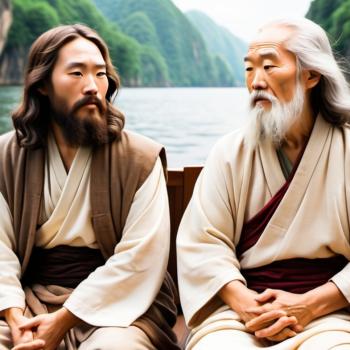I am a Mormon and I love being one. I love "my people" as well as my church. But sometimes Mormons drive me nuts.
Of course "Mormons" means "the Mormon culture of the intermountain west of the U.S., much of southern Idaho and northern Arizona, and some other places like Henderson, Nevada, and Orange County, California." That's not a large part of the world, but it does include a large number of American Mormons, and that's where the culture which many people associate with Mormonism is most easily seen.
Our intermountain culture has often been exported to other parts of the world. It isn't unusual to find Mormons in other countries who have adopted it as their own. Nevertheless, there are lots of other Mormons and lots of other Mormon cultures. European and Asian and African and Australian and South Sea Islander Mormons have created distinctive Mormon cultures. But those aren't what people, even non-Americans, usually think of when they think about us.
Some things that drive me crazy are variations on problems endemic to any culture. I hate it, for example, when I find myself automatically wondering how this or that group or person can have a good family life even though they aren't Mormon. The thought doesn't last long. But it is somewhat like the automatic, learned, and momentary fear or discomfort we may have when we meet someone of a different race. We know it's wrong. We can get beyond it. But it's there, and when it happens to me I have to wonder how often it influences me without me knowing.
It bothers me that Mormons so often equate success with success in business, and white-collar business at that. My children are all in business. I hope they are successful at it, and I have seen their lives closely enough to know that being in business requires intelligence and wit. They and others have shown me that very good people can also be very good business people. So I don't think there is anything wrong with being a business person or with being successful at it.
But it bothers me that the successful MBA is just about the only model we have of success—except success in sports. That is also, in itself, not a bad thing. The problem is not that we celebrate those who are successful in sports or business. The problem is that we so rarely celebrate other kinds of success, such as success in medical research or success in the arts.
Even more of a problem, I believe, is that we never celebrate success in the trades or at craft work. We are often proud of our parents or grandparents who were farmers or tradespeople, but we seldom tell stories about contemporaries who make their living with their hands as well as their brains. We exclude them as role models, and that exclusion can have terrible consequences for them and for our children.
I get tired of the pressure we exert on people to be orthodox when there is no established orthodoxy, just a majority opinion. The fact that we are an orthopraxic religion, something I am very committed to, can mean that we expect orthopraxy in areas where there may be a common practice, but not something that is required.
This one, though, is tricky. If, in a context of orthopraxy, I refuse the conventions of the larger group, even if what I refuse is merely conventional I run the risk of also refusing to be a member of the larger body.
For example, it is conventional for Mormon men to wear white shirts to church. There's no sanction for not doing so; there's nothing doctrinal about the practice. But if I decide to assert my individuality by never or seldom wearing a white shirt to Sunday worship, I run the risk of rather clearly asserting "I am not one of you." I may deny my communion with the saints.
So, it is at least irritating when someone tells a young man that he ought not to take part in the blessing or the passing of the Sacrament because he isn't wearing a white shirt. That may wound him indelibly, and it is a cancer of the person who says such a thing. But it is equally dangerous to the young man's soul if he insists on not wearing one.
One of the annoyances of being a Mormon is our inability to improve teaching and preaching. That's largely a consequence of the fact that our leadership is lay. No one is trained for preaching, and the only ones trained for teaching are those with jobs as teachers. This is a difficulty with which the Church has been openly struggling for some time, but I don't foresee any resolution.
I don't care much for Mormon music. Some of it is good, but much of it is either saccharine—not good in the way that after a while popular music can turn out not to have been that good in the first place (think of the calliope sound of "Called to Serve")—or merely antique rather than classic.
I'm annoyed by the politicization of LDS Church members, both right and left. For a long time, the annoyance was mostly on the part of those on the left: they felt excluded by the politically conservative majority. But now, thanks to the "bloggernacle," exclusion has become an equal opportunity employer. Mormons of every political configuration can find like-minded folks on the internet and band together there. Talking only to ourselves, we can pretend that anyone who doesn't share our opinion must not be a good Mormon or a thoughtful, caring person.





